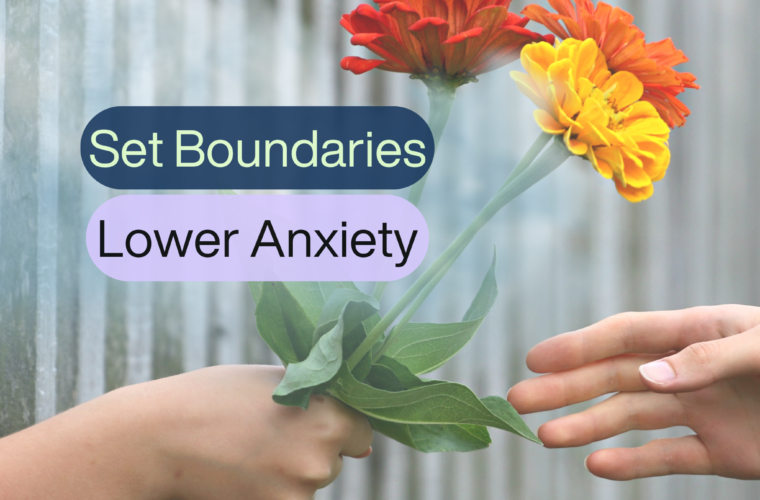Feeling overwhelmed by other people’s demands or expectations can skyrocket anxiety. Whether it’s family constantly dropping by unannounced, a friend who never takes “no” for an answer, or a coworker who piles on extra tasks, lack of boundaries often leads to stress and resentment. The good news is, setting boundaries is a learnable skill—one that starts with confidently and clearly communicating your needs.
Sometimes, you might find yourself in a place where you simply don’t enjoy spending time with certain people—whether parents, extended family, or friends—because you share few interests or values. If you feel guilty or question whether it’s “normal,” it can help to remember that not all relationships bring mutual fulfillment, and that’s okay. Boundary-setting can be especially valuable in these situations, protecting your emotional energy and helping you maintain healthier interactions even if you don’t share common ground.
Below, we’ll explore four practical steps to help you lower anxiety through healthier communication. These tips apply to all sorts of relationships—whether you’re tired of last-minute visits that disregard your schedule, or you’re dealing with someone who dominates conversations without showing genuine interest in your life. Let’s get started.
1. Recognize When Your Boundaries Are Being Crossed
Early Warning Signs
- You feel a knot in your stomach or a sense of dread as someone asks for a favor.
- You notice yourself instantly saying “yes” but internally wishing you had said “no.”
- You find that you avoid or delay responding to messages because you’re worried about confrontation.
Why It Helps
When you identify boundary violations early, you can step in and respond proactively, rather than letting anxiety build. The sooner you notice you’re uncomfortable, the quicker you can set a limit and protect your mental well-being.
2. Practice Firm, Yet Polite Communication
Use “I” Statements
- “I need more notice before making plans.”
- “I’m not comfortable with that schedule.”
Why It Helps
“I” statements reduce defensiveness because they focus on your feelings rather than accusing the other person. Being direct about your limits is liberating—it saves you from anxiety and second-guessing. If you often feel like people talk only about themselves, or never inquire about your day-to-day life, speaking up gently can remind them that your experiences and needs matter.
3. Negotiate Solutions (When Appropriate)
Not every boundary needs to be a hard “no.” Sometimes, a compromise can ease tension on both sides:
Examples
- “I can’t talk right now, but I’m free on Sunday afternoon.”
- “I’m unable to lend you money; however, I could help you look into other options.”
Why It Helps
Offering alternatives shows that you respect your own needs while still acknowledging the other person’s request. Knowing you have options—not just a simple yes-or-no—often decreases the anxiety around setting limits. This can be especially helpful when you feel guilty for not wanting to spend more time with people who rarely show interest in your own life.
4. Know Your Exit Strategy
Even the best communication can be ignored or violated. If that happens:
Plan Your “Out”
- Time-Limited Interactions: Decide in advance that a call or visit will be 20 minutes max.
- Repeat & Exit: If they keep pushing, calmly restate your boundary, then end the conversation.
Why It Helps
Having a clearly defined exit plan can dramatically lower the fear of “What if they don’t listen?” or “What if it gets awkward?” This approach keeps you in control of your emotional space. If you consistently leave interactions feeling drained or unimportant—like when parents focus only on themselves—this strategy ensures you don’t exceed your emotional bandwidth.
Conclusion
Boundary-setting is a journey—it might feel awkward or scary at first, especially if you’ve rarely said “no” before. Over time, though, communicating your needs and protecting your limits will become second nature. The payoff? Less anxiety, more self-respect, and healthier relationships built on mutual understanding.
Need Additional Support?
If you’re struggling with setting boundaries or dealing with persistent anxiety, consider reaching out to a mental health professional. A counselor can provide tailored strategies to help you confidently communicate your needs while nurturing meaningful connections. Especially if you find yourself dreading family time or feeling unheard, professional guidance can show you how to balance courtesy with self-care.




